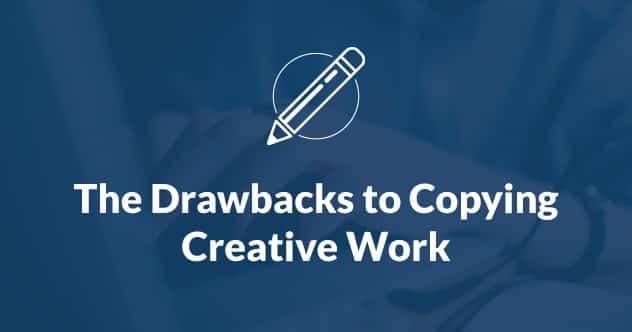Plagiarism in the Workplace Could End with Your Company’s Name Being Dragged Through the Mud
The concept of plagiarism has been drilled into our heads since middle school. We all remember having to make a works cited page at the end of an essay, but plagiarism is not just something that happens in an academic setting. Plagiarism can happen in the professional world too, whether it’s in a blog post or a report. Avoiding plagiarism in the workplace is essential to keep your business operating.
What is Plagiarism?
According to Merriam-Webster, plagiarize has two definitions “to steal and pass off (the ideas or words of another) as one’s own: use (another’s production) without crediting the source” and “to commit literary theft: present as new and original an idea or product derived from an existing source.”
Plagiarism can be something as simple as forgetting to cite a source for a general idea or something more serious like copying and pasting exact words from another piece of work without giving credit.
Personal and Company Reputations
Plagiarism can damage your reputation and the reputation of the company you work for. If you get caught copying someone else’s work, your boss may suspend your pay, and in some cases, have to let you go. Your current job is not the only thing that can be threatened if you plagiarize your work. Your professional reputation could be damaged, hurting future career opportunities.
The work an employee does reflects the company’s standards and image. If employees are writing content that is not their own, it is blamed on the company. It shows that the company lacks order and honesty. If the information goes public, it can seriously hurt the company’s image, and can become a public relations crisis.
The Legalities of Plagiarism
Besides the fact that plagiarism is both morally and ethically wrong, it can also land you in court. The legal term of plagiarism is copyright infringement. When an employee copies someone else’s work, it causes the company to be open to a lawsuit. The person and company accused of breaking the law may have to pay heavy fees and in some cases, spend time in jail.
Preventing Plagiarism in the Workplace
Plagiarism is a serious but preventable problem in the workplace. There are several steps a company can take to help prevent employees from copying other people’s work. The company should define what their writing standards are and enforce referencing sources in their work.
The company should also consider having a writing workshop at the office. A workshop will offer the opportunity to refresh old information, teach new tactics, and overall improve the quality of writing in the office. Installing reference management software like EndNote or Zotero will also prevent someone from publishing work that is not cited correctly.
There are many different software options a company can use and research in order to find the best one for their company. If you are still unsure how to reference a piece of work, looking up common citation practices online is always a good idea.
Plagiarism, or copyright infringement, is both unethical and illegal. While it can be accidental, copying someone else’s work can cause major issues for your company and your future career.
Protect your work and company by referencing your sources and keeping your work honest.
Samantha Territo is attending school at Louisiana State University studying in mass communication specializing in digital advertising with a minor in business administration. She is an active member of the Advertising Federation on campus and loves coffee.
Work with Catapult Creative Media Inc. Catapult Creative Media Inc. is a digital marketing and design agency serving clients over the United States but is proud to call Baton Rouge, Louisiana home. Founded in 2007, Catapult provides digital, social and mobile marketing solutions backed by relevant strategy and measurable results. Catapult works the web to their clients’ advantage, launching them to their next level of success.





